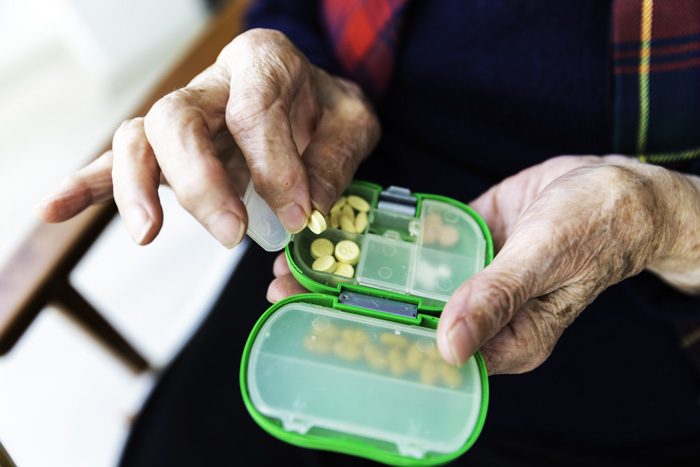Contrary to its many societal stigmas, addiction is a physical illness that anyone can be susceptible to—even the elderly.
In fact, the elderly might be more at risk for developing an addiction than what is often initially expected. According to an the Partnership for Drug-Free Kids, ”Between the ages of 57-85, three out of every ten people are likely to be using at least five different prescriptions” and “health experts are concerned about the increase in the number of patients over age 50 who require intervention and treatment for addiction to medication and other substances.”
It is important to be aware of factors that increase the likelihood for an older person to begin abusing substances and to be able to identify typical symptoms so that you can immediately take preventative measures. Understanding how addiction develops helps to ensure the safety and wellbeing of those that you love.
What makes the elderly susceptible to addiction?
- As the Partnership explained, most of the elderly are already being prescribed multiple medications that are likely to incur a dependence at the least. For example, opioid medication for pain is highly addictive.
- Many elderly people may not feel driven by a specific calling or purpose due to retirement or their physical health prohibits them from continuing in the activities and practices that used to motivate them and fill their time. Feelings of restlessness, defeat, failure, self-criticism, and low self-esteem are risk factors when faced with the temptations of addiction.
- Unfortunately, elderly people are often isolated and lonely, which are both circumstances where it is too easy to feel compelled to fill those voids with addictive substances. Not being regularly surrounded by people who know you and care about you also makes it less likely for addiction symptoms to be caught early on.
Symptoms of Addiction in Seniors
According to Family Doctor, the following are signs that an elderly loved one might be abusing their prescriptions:
- Being sneaky or going out of their way to pick up their medications and/or prescriptions. This might look like getting the same prescription from two separate doctors or picking up the medicine at multiple pharmacies. A similar symptom would be hiding or stockpiling their pills.
- Taking their medication in ways that were not prescribed: taking it more often than intended, taking it at different times than instructed, mixing it with other substances, etc.
- Having a history of addiction in the family or already having a personal past with substance abuse.
- Social and emotional changes like defensiveness, anger, confusion, forgetfulness, or isolation.
How to Reduce the Risk
There are several steps you can take to help prevent your elderly loved ones from developing an addiction.
- Discuss all of the medications that they are taking. Make sure that they are aware of their effects and of what substances cannot be used together.
- Spend time with your loved one! Combating toxic mental states and emotions with quality time and some tender-loving care can be extremely beneficial in resisting a likely addiction from forming.
- If your loved one has a prior history of substance abuse, make sure that their health care providers are in the loop and that your preventative efforts can be a team goal.
Seeking Help
Identifying and acknowledging these symptoms for what they are can be one of the most difficult steps in the recovery process for some people. The next step would be to confront your elderly loved one about the situation.
When discussing your concerns, remember to be patient and non-judgmental. Make certain that you are coming to them about this from a place of love. Ask them or their healthcare professionals to look into seeking treatment at an addiction recovery center like the Aviary.
(314) 464-0222. We’re here to help.










